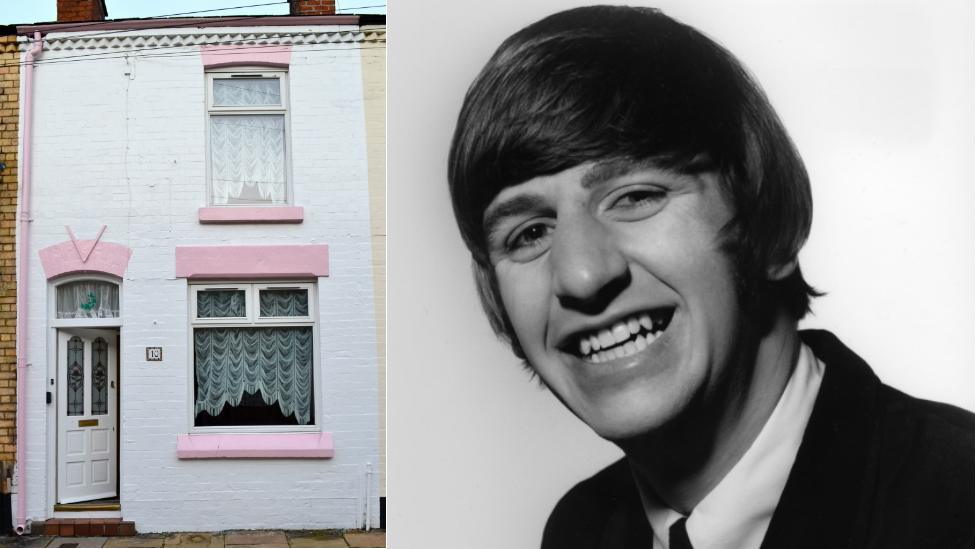The Beatles 'add £82m a year to Liverpool economy'
- Published
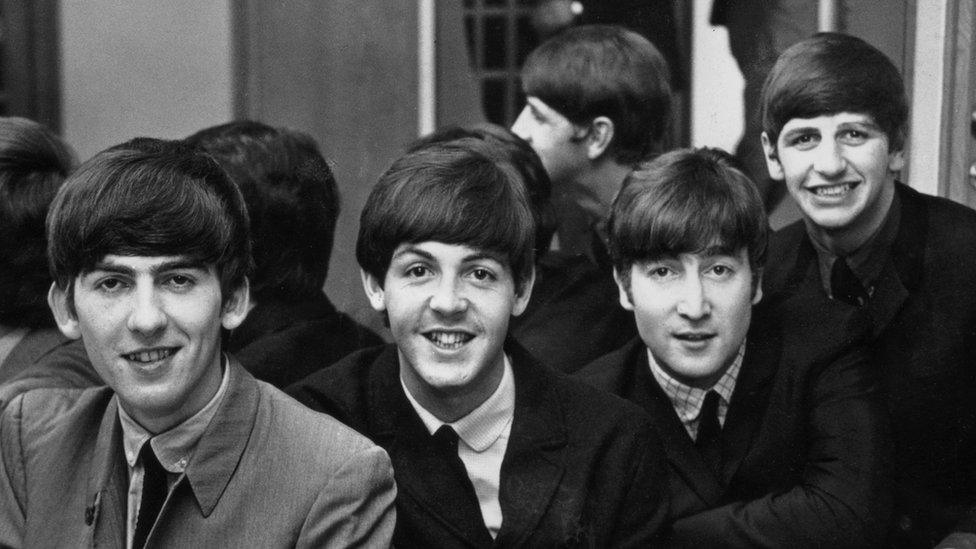
The Beatles formed in Liverpool before achieving worldwide fame in the 1960s
The legacy of The Beatles adds nearly £82m to the Liverpool economy each year, new research has suggested.
The band's impact also supports 2,335 jobs in the city, claims the report, external commissioned by Liverpool City Council.
Professor Simeon Yates, who was lead author, said the city needed to "maintain standards" to boost tourism.
Councillor Richard Kemp, whose ward includes Penny Lane - made famous in a Beatles' song - called for tourism to "percolate" from the city centre.
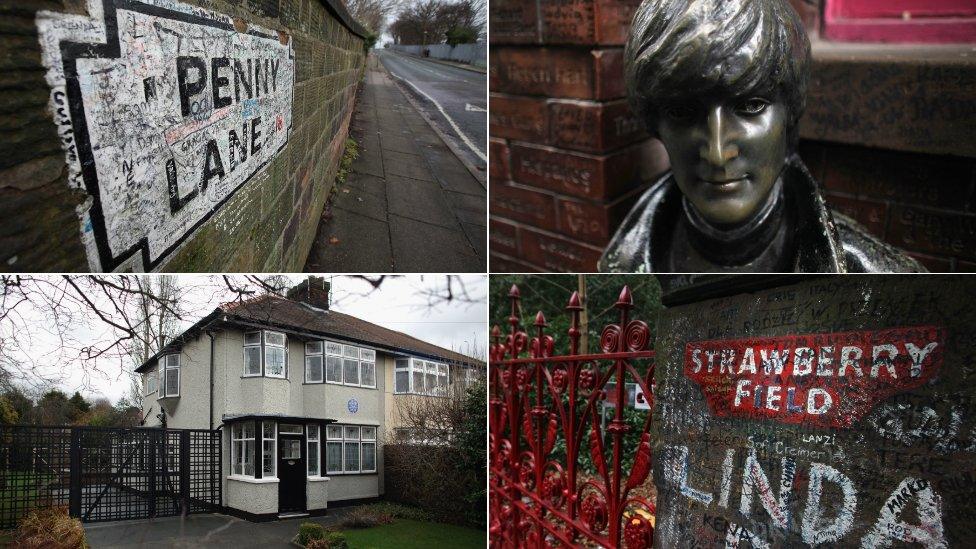
Penny Lane, the Cavern Club, Strawberry Field and the former homes of The Beatles have been a magnet for fans
His ward also includes St Barnabas Church, where the band used to perform, Quarry Bank School - which John Lennon attended - and Dovedale School, also attended by Lennon and his band mate George Harrison.
Spreading tourism would "decrease congestion in town", said Mr Kemp, who added the Allerton Road area - near Penny Lane, where Lennon would meet band mate Paul McCartney to catch the bus to the city centre - could be developed as the "Beatles Homeland Quarter".
The report said the Beatles-related economy was growing by up to 15% a year and that the band's songs were becoming increasingly popular in Brazil and China alongside the more established fan bases in Europe and the US.
The research, produced by Liverpool John Moores University and the University of Liverpool, is the first study of the contemporary value of the quartet that achieved worldwide fame in the 1960s.
It also recommended the launch of a "Beatles Legacy" group to develop the sector.
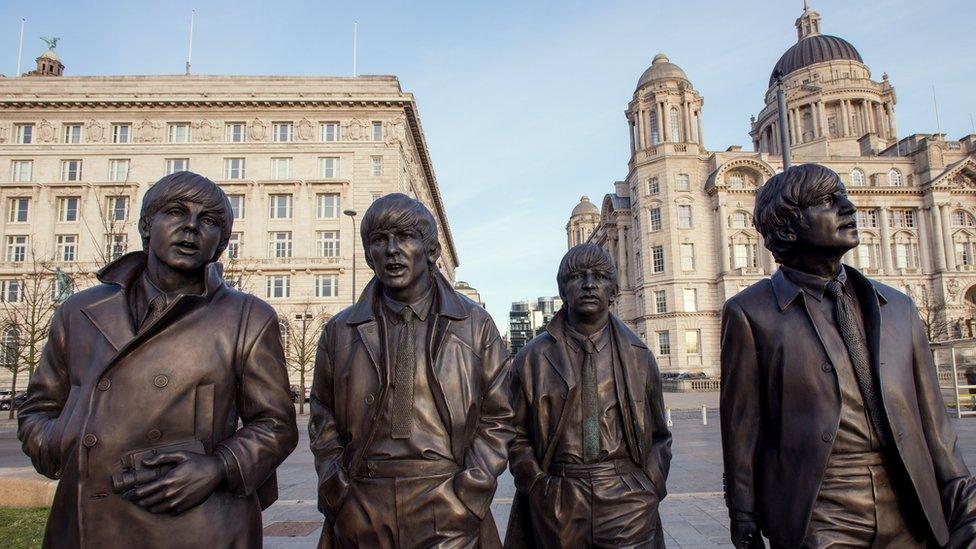
A statue of The Beatles was unveiled in Liverpool in December after a £100,000 investment from the Cavern Club, where they used to perform
The city's mayor Joe Anderson said: "Everyone knows The Beatles have had a big impact on the city's past, but now we know exactly what that is and what we can do, together with other stakeholders, to ensure their impact on the city's future."
A council spokeswoman said the relocation of the British Music Experience, which opens in the spring at Liverpool's Cunard Building after moving from London, would strengthen the city's musical attractions, by drawing up to an estimated 200,000 visitors a year.
Other plans include the Salvation Army's redevelopment of the former Strawberry Field site - also the immortalised in a Beatles' song - into a training centre for those with disabilities and a visitor attraction highlighting the site's significance to The Beatles.
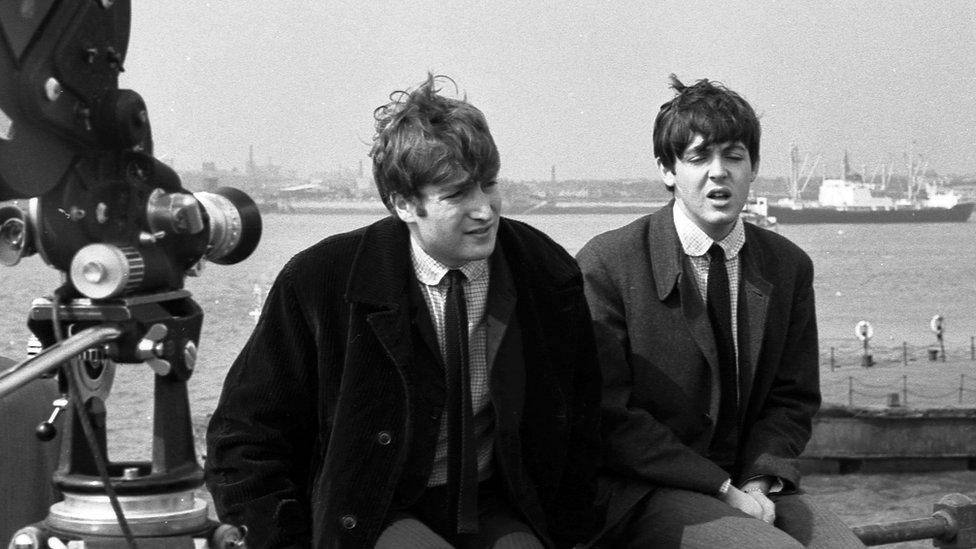
John Lennon and Paul McCartney were filmed on the Liverpool waterfront for the BBC in 1963
- Published1 February 2016
